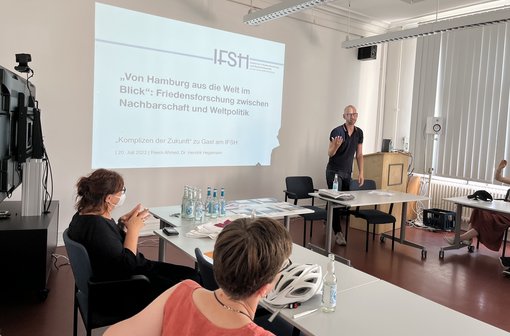Should Germany play a more prominent role in foreign and security policy? And what does it mean for Germany to accept greater responsibility? Does taking on more responsibility include sending more soldiers abroad and increasing defense spending? Cornelius Friesendorf, Head of IFSH's Centre for OSCE Research (CORE) discussed these questions at a public forum convened by the German Social Democratic Party (SPD) on 21 January 2020 in Bremen. He argued that the German government should carefully assess the benefits and costs of a more interventionist foreign policy, and should have the courage to defend, when necessary, foreign policy restraint in the face of domestic and international critics. After all, demands for a more assertive foreign policy often rest on untested assumptions and mask a preference for power politics that is problematic not least in light of German history. Cornelius Friesendorf illustrated these problems with reference to NATO policy towards Russia and military stabilization missions.
The event was hosted by Sarah Ryglewski, Member of the Bundestag and Parliamentary State Secretary in the Federal Ministry of Finance. Cornelius Friesendorf's co-panelist was Dr. Rolf Mützenich, the leader of the SPD group of parliamentarians in the Bundestag.




